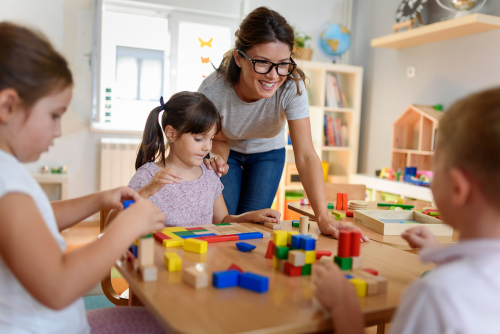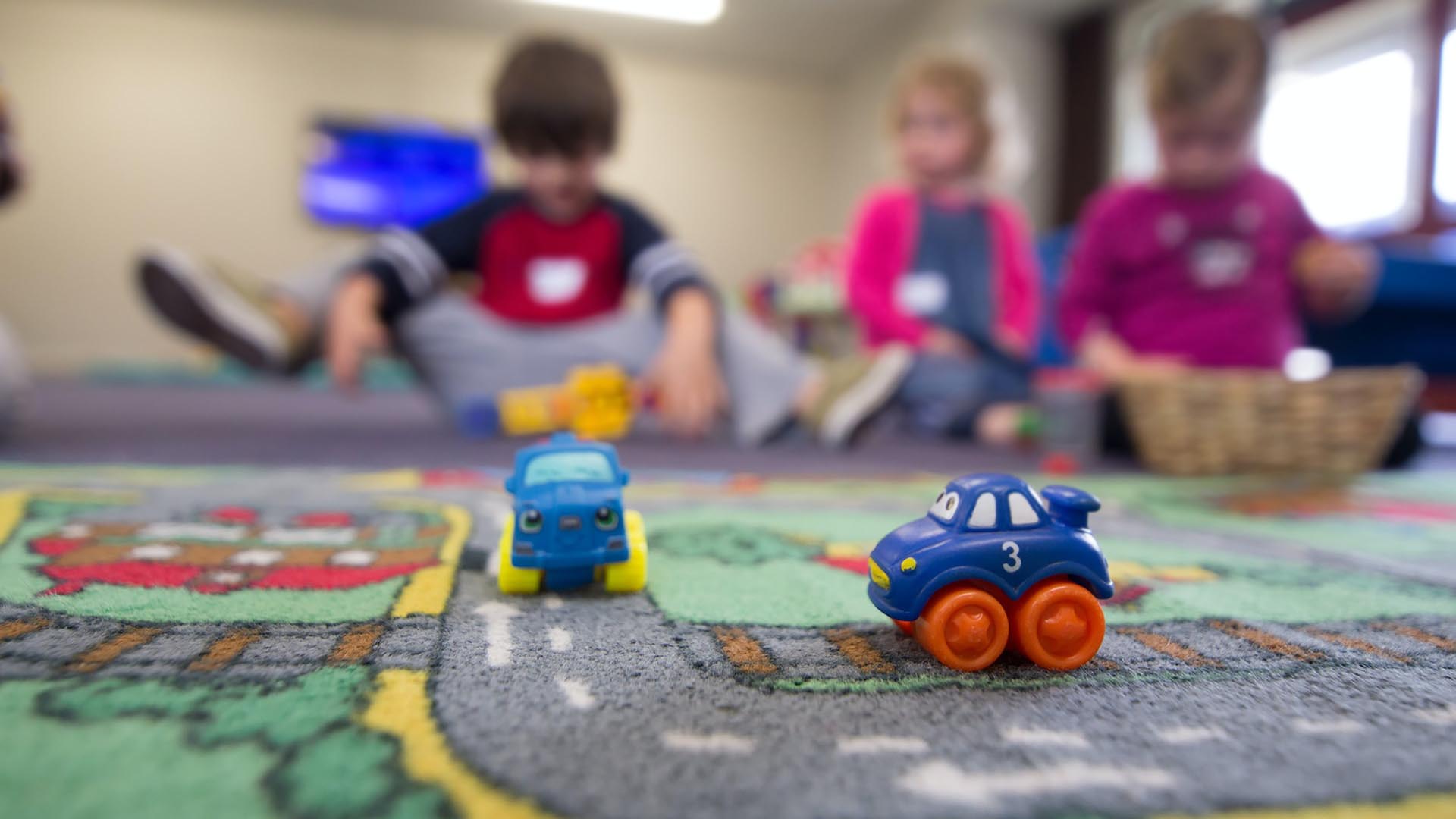Understanding the Value of Daycare for Your Young child's Social Development and Knowing Experiences Through Involving Activities
The value of day care in shaping a young child's social growth and knowing can not be overstated, as it provides a structured environment filled up with interesting tasks that are essential for very early development. As we explore the multifaceted advantages of day care, one have to consider exactly how these foundational experiences influence a child's future social communications and general development.

Benefits of Social Communication
Social communication plays a vital role in the developmental trajectory of young children, offering as a structure for vital social abilities. Involving with peers permits toddlers to exercise interaction, learn to share their emotions, and establish empathy. Via shared play and teamwork, they begin to comprehend social standards, such as taking turns and sharing, which are important components of successful social connections.
Moreover, social interactions add to cognitive advancement. As toddlers connect with their peers, they improve their language abilities, expand their vocabulary, and enhance their capability to articulate feelings and ideas. This exchange of ideas cultivates essential reasoning, as children find out to work out, resolve troubles, and browse problems.
Furthermore, social communication advertises psychological regulation. Direct exposure to various social situations aids young children recognize and handle their feelings, inevitably resulting in better resilience and versatility. The capacity to form add-ons and relationships additionally improves their sense of belonging and self-confidence, which are crucial for total well-being.
Importance of Engaging Activities
Engaging tasks are crucial for cultivating a revitalizing environment that enhances kids' social development. These tasks not only mesmerize kids's attention but also advertise energetic involvement, allowing them to explore their environments artistically. Via play-based discovering, kids develop important skills such as analytic, collaboration, and compassion, all of which are essential for constructing healthy connections with peers.
Taking part in appealing activities, such as team games, art projects, and interactive narration, urges kids to express their ideas and sensations. This expression is vital for emotional intelligence and aids them recognize the point of views of others. When toddlers involve in these tasks together, they find out to work out duties, share resources, and team up, which are basic facets of social communication.
Furthermore, a well-structured environment that includes stimulating and diverse tasks assists in maintaining young children inspired and concentrated. This inspiration fosters a love for finding out and exploration, laying the foundation for future academic experiences. Inevitably, engaging activities in childcare setups are essential fit social skills, preparing young children for successful communications past the class, and nurturing their general growth throughout these formative years.
Developing Communication Abilities
Reliable communication skills are critical for young children as they browse their early social communications. In a daycare setup, children are subjected to varied social situations that motivate spoken and non-verbal interaction. Involving in discussions with caretakers and peers promotes language advancement, making it possible for kids to share their ideas, feelings, and requirements extra properly.

In addition, childcare settings offer chances for young children to resemble and observe interaction designs of their peers and adults. This empirical discovering is vital as kids choose up on social hints, tone, and body language, which are vital elements of effective interaction.
Cultivating Self-reliance and Self-confidence
As toddlers refine their interaction abilities, they simultaneously begin to discover their self-reliance and build self-confidence in social settings (infant daycare near me). Childcare supplies an organized setting where children can take part in various tasks that urge freedom. From selecting their own activities to taking part in group jobs, these experiences encourage toddlers to choose and reveal themselves
In a childcare setting, youngsters are usually provided with chances to resolve problems independently, whether it's figuring out how to share toys websites or dealing with conflicts with peers. This promotes essential thinking and promotes self-sufficiency. In addition, caregivers support this advancement by offering positive reinforcement and guidance, aiding youngsters to browse social interactions with self-confidence.

Team tasks, such as cooperative games or collaborative art tasks, promote synergy and show young children the importance of collaborating. Through these interactions, kids learn to communicate their thoughts and sensations, better boosting their self-worth and social skills.
Eventually, promoting self-reliance and self-confidence in day care not just prepares kids for future social environments but additionally lays the foundation for a resistant state of mind, equipping them with necessary life abilities as they proceed to grow and find out.
Building Lifelong Discovering Structures
A strong foundation for lifelong learning is essential for toddlers, as their early experiences shape their perspectives in the direction of education and curiosity. Daycare settings play an essential role in this developmental stage by providing structured opportunities for exploration and involvement. Involving tasks, such as team play, arts and crafts, and interactive narration, boost cognitive advancement while urging social interaction.
Via these experiences, young children find out necessary skills such as problem-solving, interaction, and cooperation. They are presented to the idea of discovering as a satisfying, collaborative procedure instead of a job, which promotes a positive mindset in the direction of education and learning. Moreover, direct exposure to varied perspectives and peer interactions in childcare setups boosts psychological knowledge, promoting compassion and this strength.
Caregivers and teachers likewise contribute considerably to building this foundation by modeling curiosity and enthusiasm for understanding. By encouraging inquiries and helping with conversations, they produce a setting where youngsters feel secure to reveal themselves and discover originalities. Eventually, the mix of encouraging relationships and appealing activities in day care setups lays the foundation for a lifelong love of discovering, furnishing kids with the skills and attitude required for future academic and personal success.
Final Thought

The significance of daycare in forming a toddler's social advancement and understanding can not be overemphasized, as it supplies an organized environment filled up with appealing tasks that are crucial for very early development.Social communication plays a critical role in the developmental trajectory of toddlers, serving as a structure for crucial social abilities. When young children engage in these tasks together, they find out to bargain functions, share sources, and work together, which are fundamental aspects of social interaction.
Eventually, engaging tasks in daycare setups are essential in shaping social skills, preparing kids for effective communications past the class, and nurturing their general growth throughout these developmental years.
Ultimately, the benefits of engaging tasks in daycare settings play a substantial duty in preparing toddlers for future social interactions and difficulties. baby daycare near me.